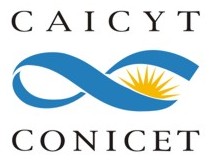Category — Technical Themed Sessions
Customizing OJS for Magazine Publishers: The Session Blog
Presenter: John Maxwell
July 9, 2009 at12:00 noon

John Maxwell
Background
John Maxwell is currently with the Canadian Center for Studies in Publishing at Simon Fraser Universtiy in Vancouver, British Columbia. John’s work specifically focuses on the advantages of open journal system (OJS) software models to be used as a framework for the Online Magazine Management Models (OMMM) project that applies to use in the area of publishing small cultural magazines (Maxwell, 2008).
Session Overview
John Maxwell reported on the very recent initiatives of a new model for small magazine editorial publishing. The OMMM) project based its creation on the Open Journal Systems (OJS) with what Maxwell describes as a process with a more collaborative approach but at the same time keeps within the intent of the OJS overall concepts.
Small cultural magazines do not have the exact purpose of journal publishing but there are similarities to moving from text based publishing systems into online management systems. The OMMM project is not at a stage of online publishing but is using the OJS concepts and applying that process to the electronic management of submissions as a starting point.
With the specifics of the OJS, Maxwell’s work centers around taking some of the same ideas of OJS and applying those systems to fit into a version that would be streamlined for magazine publishing.
What the OMMM project essentially produced was a translation of user interface from OJS into a more user friendly language for magazine publishing. As the project evolved two models of editorial governance were designed:
- Discrete delegation of responsibilities
- Collaborative, task-based, process management
One of the key concerns while working on the OMMM project was to capture a workflow model that would capture the essence of a wide variety of small cultural magazines. Currently the project is using PLONE as the Web platform – designed as a “miniature OJS.” PLONE houses the Editorial Submission Management (EMS) that includes the following aspects:
- System of buckets for organizing content
- 3 stage workflow (red, yellow, green)
- Basic notification
- Word.doc – Web based content
- Relies on collaboration and trust among the editorial group
Although this new concept is in its infancy the concept of using OJS framework has moved the publishing of small scale magazines into the cyber world and has started a ground level development in the first steps toward newer developments of online publishing for the future.
Audience Input
The overall sense from those audience members who spoke – were complimentary to the project or any project that uses online open access; however, access to the technology remained the major issue for users of any place across the world….not just remote areas. There still remains key issues around access to the technology and infrastructure in order to access these online programs for the publishing and reading of open source knowledge.
References
Maxwell, J.W. (2008). OMMM Project: Toward a collaborative editorial workflow. Blog. Retrieved July 7, 2009, from http://thinkubator.ccsp.sfu.ca/wikis/ommm/OMMMProjectTowardACollaborativeEditorialWorkflow
Related Links
BC Association of Magazine Publishers
Workshop: Web Content Management for Publishers – August 4,5 and 6
July 9, 2009 2 Comments
Website for CONICET´s Academic Publications: the Session Blog
Presenter: Alberto Apollaro
July 9, 2009 at 4:00 pm
Background
Alberto Apollaro is a member of the Scientific Electronic Library Online (SciELO) Argentina group and is a specialist in webspace development and applications. Mr. Apollaro joined CAICYT-CONICET in 1998 as a systems website administrator, including serving as the webmaster for CONICET’s specific website for academic publication.
Session Overview
The SciELO project’s directive is based on “the development of a model methodology for the preparation, storage, sharing and evaluation of scientific publications as an electronic support.”(1) As an alternative to print, the library facilitates international distribution of Latin American scholarship with regional impact in an organized, accessible format. This regional project stems from National Council for Scientific and Technical Research (CONICET) policy, which in turn is administered by the independent, Argentinian Centre for Scientific and Technological Information (CAICyT).

Comisión Asesora de Investigación Científica y Técnica / Consejo Nacional de Investigaciones Científicas Y Técnicas
The CAICyT has charged the production a website which will allow Argentina systematically catalogue digitalized data that is editorialized and peer-reviewed as per the academic standards previously described by CONICET. Also, in part of CAICyt’s directive to push Argentinean scholarly publication into the open-access era, CONICET draws upon 15 university repositories to fuel 32 open-access e-journals. This initiative is facilitated by the use of the open-source Open Journal System (OJS) Software which allows online management of the process from submission through to publication.
The process began with journal selection from the Latindex, which contains over 2,800 titles. Editors were then invited as the website was constructed. CAICyT would provide the editors’ platform for discussion and consultation, while also providing publishers with guidelines for quality improvement . OJS allows the website to self-archive authors’ submissions and facilitate peer-reviewing and copy-editing quickly and efficiently.
The expectation is that the CONICET website will provide a repository and portal for local Argentinean scholarship, and allow publication not just limited to text but multimedia also. The streamlined editorial model allowed by OJS will hopefully encourage submission of regional scholarship and see it through to immediate publication, while operating under a more economically attractive model in comparison to traditional publication.
During the following discussion, Mr. Apollaro described the OJS is a very attractive mechanism to facilitate publication in Latin America (for the aforementioned reasons), but the problem lies in the current unfamiliarity shared amongst Argentinean scholars with OJS. This is essentially holding back the website’s growth, and progress of the Latin American open-access movement in general. Certainly, one of CONICET’s future efforts should be focusing on increasing open-access awareness in the Latin American scholarly community.
References
1) http://www.scielo.org.ar/scielo.php?script=sci_home&lng=en&nrm=iso
July 7, 2009 Comments Off on Website for CONICET´s Academic Publications: the Session Blog